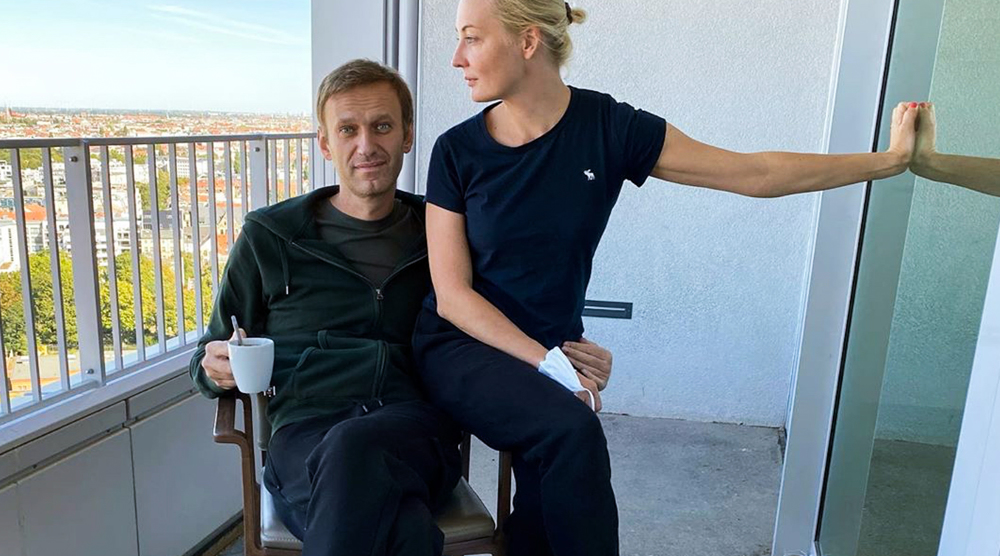Russian experts says Navalny had pancreatitis, was not poisoned
Russian opposition figure Alexei Navalny’s collapse in August was due to metabolic problems and pancreatitis, Russian experts have confirmed, rejecting the allegation by Western governments that he was poisoned.
The Siberian branch of the Russian Interior Ministry said in a statement on Friday that the doctors who treated Navalny for two days before he was transferred to Germany confirmed their diagnosis of “disruption of carbohydrate metabolism and chronic pancreatitis.”
“The diagnosis of ‘poisoning’ … was not confirmed,” it added.
Navalny, 44, collapsed during a domestic Russian flight from the Siberian city of Tomsk to Moscow on August 20 and was taken to a local hospital. He was airlifted to Berlin on August 22. Navalny’s aides claimed he had been poisoned after drinking a bottle of water at a hotel before the flight.
On September 2, Germany claimed without evidence that the Russian opposition figure had been poisoned with a Novichok nerve agent.
But the Russian doctors who tested Navalny’s blood for poisoning before he was moved to Germany said at the time that the test results had come back negative.
The Interior Ministry also said that no poisonous substances had been found on Navalny’s clothes or on objects collected from his hotel or an airport cafe in Tomsk.
Also on Friday, Sergei Naryshkin, the head of Russia’s Foreign Intelligence Service (SVR), said that NATO countries were plotting to use a Russian opposition figure as a “sacred sacrifice” to stir sentiments against the Russian government.
Western governments have been attacking Russia with accusations that it poisoned Navalny, saying Moscow must help investigate the case or face consequences.
But Germany, which made the poisoning allegation, rejected a request by Russian prosecutors to provide Navalny’s medical records for a comparative study of his condition.
The Russian government has denied any involvement in any attack on Navalny, who was discharged from a Berlin hospital in September.
In October, EU foreign ministers imposed sanctions against several Russian military intelligence officials over Navalny’s case.
Separately, the Russian Foreign Ministry accused Germany of using “made-up pretexts” to avoid cooperating in probing the case. Moscow urged Berlin to “abstain from further artificial politicization of the situation.”
According to the Russian Foreign Ministry, Russia’s top diplomat, Sergei Lavrov, told German Foreign Minister Heiko Maas during a phone conversation on Thursday that Berlin’s refusal “to fulfill its international legal commitments” and offer Navalny’s medical information was unacceptable.
Tel Aviv tells Damascus Israeli forces will remain in occupied territory: Report
Dec. 22: ‘Axis of Resistance’ operations against Israeli occupation
‘Abhorrent’: Oxfam says only 12 trucks delivered aid in North Gaza since Oct.
VIDEO | Leader receives religious eulogists on Hazrat Fatima birth anniv.
Pope Francis slams Israel’s ‘machine-gunning’ of Gaza children
US hostage-taking of Iranian nationals violation of intl. law: Deputy FM
VIDEO | Carol Singers for Palestine on London’s Parliament Square
Ansarullah says ‘Israeli terrorists’ incapable of confronting Yemen, warns of secret weapons

















 This makes it easy to access the Press TV website
This makes it easy to access the Press TV website